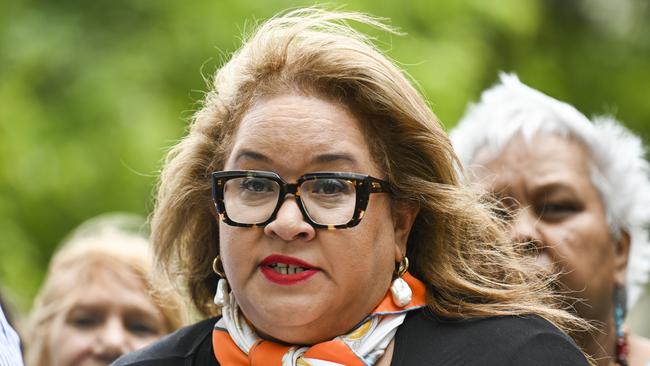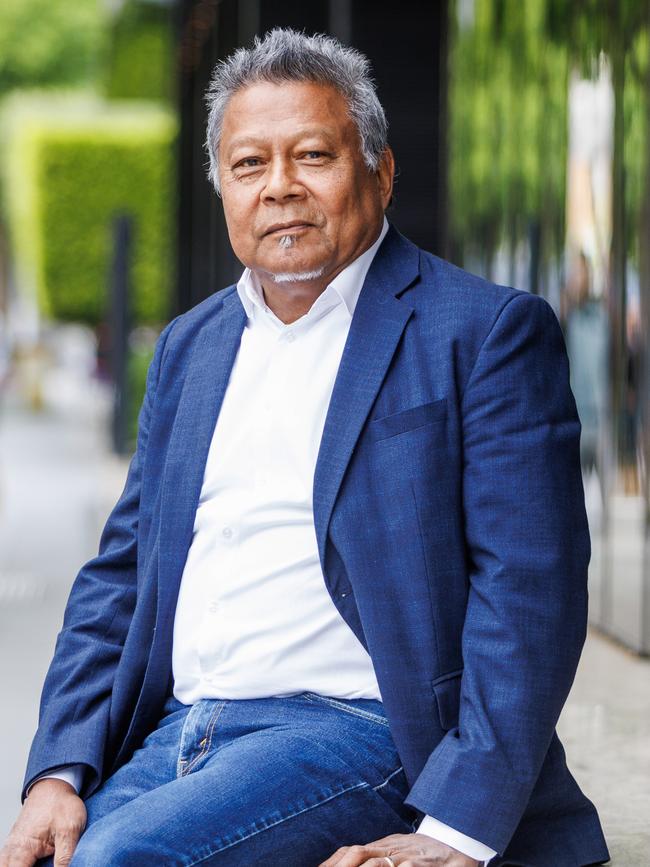Yes camp’s warped ‘post-mortem’ shows they still don’t get why voice failed

Readers of this newspaper know well that to close the gap we need to focus on those Aboriginal people who are most disadvantaged and address their basic needs, much the same as we would for other Australians.
Of course, I am talking about the need for education, job readiness, opportunities for employment and easy access to modern services. This view aligns with what Peter Yu recently advocated in The Weekend Australian; namely, a focus on economic prosperity and wealth creation.
I was invited to write for these pages immediately after the referendum result, but with the exception of that piece I have not written any comprehensive analysis. But, after reading the piece by pre-eminent Aboriginal voice advocate Megan Davis, I wanted to offer some comments on her views as they relate to the voice.
Davis’s article was an edited extract from the NAIDOC Week keynote lecture, which she delivered at the University of Queensland. In it, Davis states she has had a lot of time to “think about the referendum, and yarn about it”. I have too, but I have not “yarned”. I’ve simply had discussions with other people about it. In the eyes of the “modern First Nations person”, my failure to yarn may disqualify me from informed comment on the voice. Whatever the case, I write as an Australian, as I always have.
Fundamentally, Davis presents messages that are counter-productive for Aboriginal people.
For example, she suggests the failure to include Aboriginal Australians in the Constitution implies they are somehow unimportant. Aboriginal children returned to school the Monday after the referendum “feeling like they didn’t belong”, Davis wrote, while many other Aboriginal people “felt sickened, hurt, rejected”. Finally, her claim that the voice proposal was an olive branch offered to the rest of Australia beggars belief.
Much could be said in response to these points, but let me say most Australians care deeply for Aboriginal people. Any feelings of exclusion or hurt felt by Aboriginal people – allegedly caused by the No outcome – arose because they were repeatedly told the lies that Aboriginal people lack a voice, and a No outcome means non-Aboriginal Australians are racist and do not care.

When I wrote before the referendum, saying I could not predict the result, I commented that if the Yes case were to prevail it would do so purely on emotion. And yet reading Davis’s piece, it is striking that she is again appealing to emotion about the failure of the Yes camp. Is she hoping most Australians will endorse the next iteration of the voice? I ask this because the voice is far from over.
There is now a shadow voice – much like the original voice – that is merely a rehash of an old idea, one that promotes separatism. While the original voice may be dead, the mindless pursuit of the shadow voice is not. It is therefore important we continue to have these conversations.
My concern about pursuing this shadow voice, along with treaties and truth telling, is that it uses valuable energy and resources that could be better focused on real-life issues that impact far too many Aboriginal people.
In recent weeks we have read stories about crime waves involving Aboriginal youth, curfews and cashless debit cards.
If you get your news from left-leaning media, then you are sure to get your daily instalments of Aboriginal deaths in custody, claims of racism, stolen children, along with the narrative that a Yes vote would have dealt with all these issues.
We know how to deal with these issues, and it is not reliance on any voice-like structure.
The Aboriginal architects of the voice represent a stellar cast of hardworking, highly intelligent and successful people. They have earned what they have; and what they have, they gained without the voice. To their credit, they continue to use their voices to call attention to the fact far too many Aboriginal people in this country are denied the advantages, opportunities and equity they have themselves.
They should be using their voices to tell these less fortunate Aboriginal Australians what their formula for success has been.
And that formula is pretty much the same one that works for all Australians.
Anthony Dillon is an Indigenous commentator, and an honorary fellow at the Institute for Positive Psychology and Education at the Australian Catholic University in Sydney.


Since the defeat of the Indigenous voice to parliament, I have generally avoided pursuing post mortems or extended discussions of the failed referendum. If I do engage in these kinds of discussions, it’s mostly to say the No outcome was not a loss to Aboriginal Australians, given they already had voices and continue to use them, and that the path towards closing the gap is clear and has been for some time.